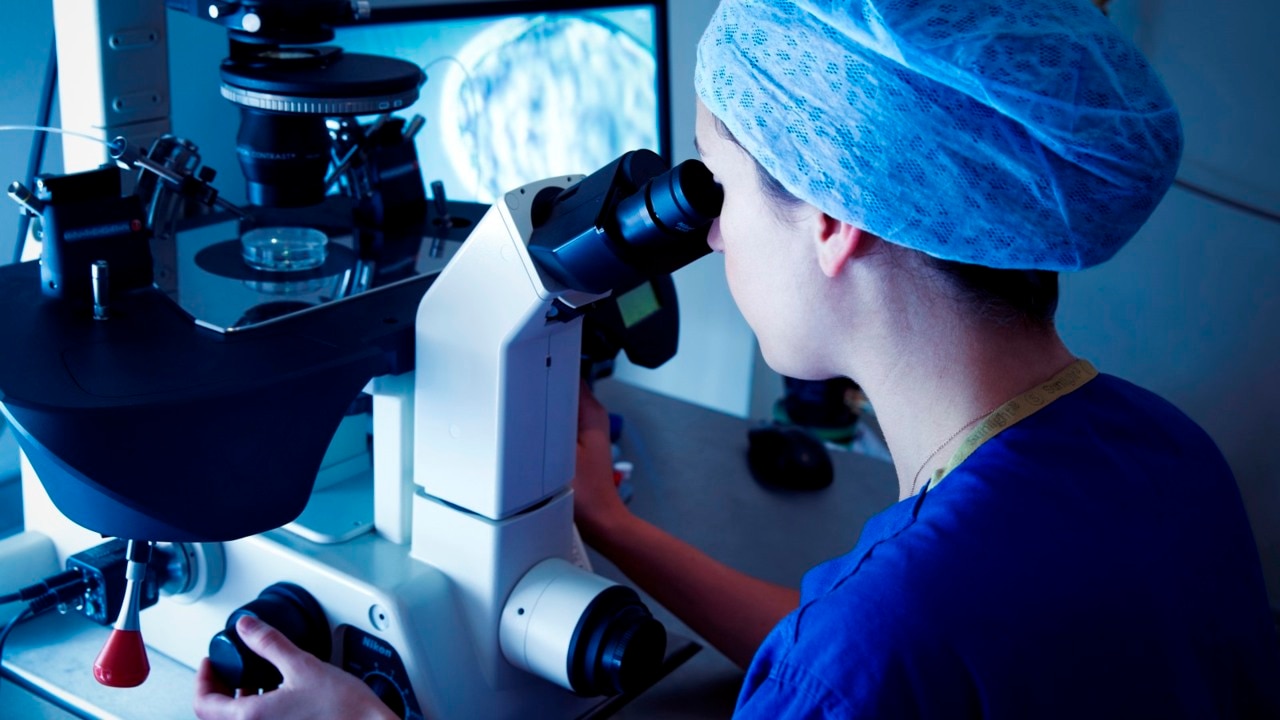Study examines how IVF affects genes of babies through to adulthood
More than eight million babies have been born around the world through the miracle of IVF. But what influence does the process have on those conceived using the 40-year-old medical technology?

News
Don't miss out on the headlines from News . Followed categories will be added to My News.
The genes of babies conceived through IVF are affected differently at birth, but by adulthood these differences have been corrected, new research has found.
The Melbourne researchers say while their findings add weight to the growing evidence that IVF does not generally adversely affect health in the long term, they also explain why IVF-conceived pregnancies have a higher risk of complications.
More than eight million babies, including 200,000 Australians, have been born using assisted reproduction technology globally.
Given the treatments involve handling the embryo and the use of hormones, there have long been concerns around how this 40-year-old technology influences future health.
With an average of one child in every Australian classroom born via IVF and the first generation of IVF-conceived adults now starting their own families, the researchers say that determining if there were long-term health consequences of artificial reproduction technology was a pressing question.
Murdoch Children’s Research Institute led a study to analyse heel prick blood samples collected at birth of almost 160 Australians conceived through two assisted reproduction technologies — IVF and Gamete intrafallopian transfer — and 75 people conceived naturally.
Those samples were compared to ones taken from the same population when aged 22-35 years, with researchers looking at epigenetic changes.

Epigenetic processes affect how cells read the genes and decide whether to turn them on or off, which dictates their function.
Environmental and lifestyle factors such as smoking, diet and stress can also influence how our genes are regulated.
Lead author Professor Jane Halliday said while the epigenetic differences could be measured postnatally, these variations were largely resolved by adulthood with no direct evidence that impacted on health or development.
“Epigenetic processes are programmed through embryonic development, but the very key stage is around implantation (in the uterus),” Prof Halliday said.
“That’s why we’ve been particularly concerned looking at assisted reproduction, because it’s changing the environment at that point where all the epigenetic processes are set in place.
“At birth we can detect those changes, but as people age and their cells keep dividing, they’re forgetting they were conceived by ART.”
The study was published in the journal Nature Communications.
Prof Halliday said the study confirmed their previous findings in this same population, which saw no evidence of heart, growth, metabolic or respiratory problems in ART conceived adults.
“But it adds to the weight of our general knowledge that being conceived via ART puts that baby at greater risk of having problems in the peri-natal period such as low birth weight, being born early and a slightly increased risk of having a child with a congenital abnormality.”


